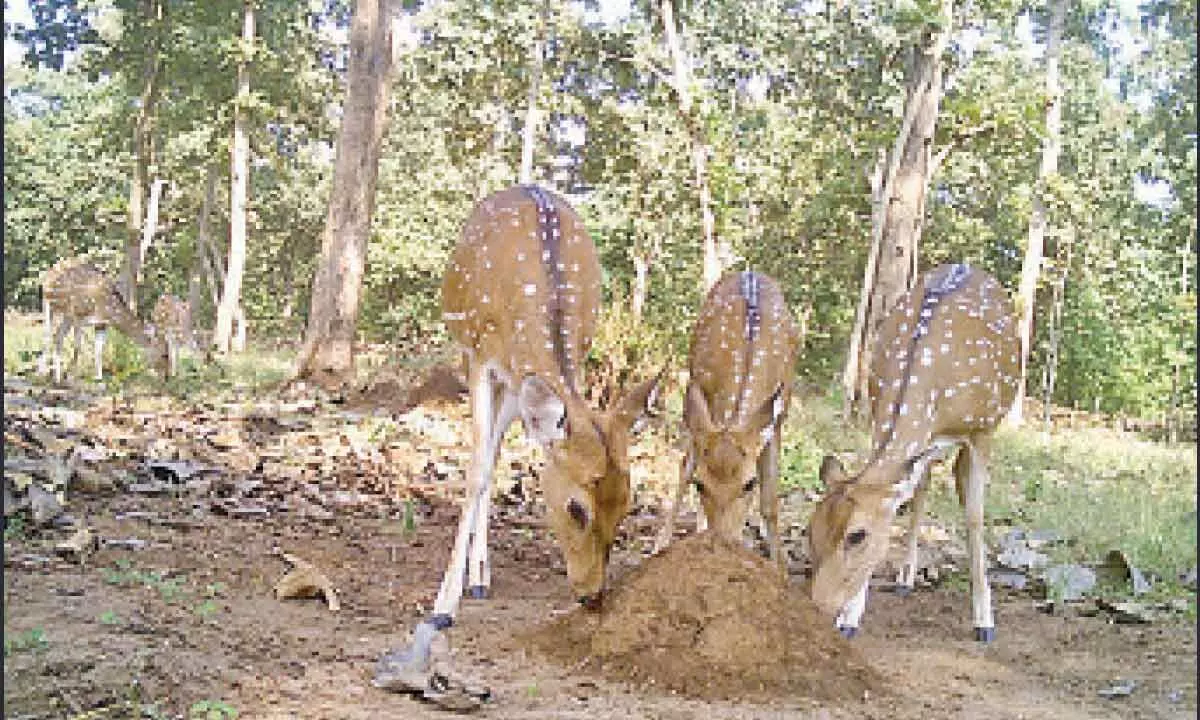Hyderabad: Salt licks shortage takes toll on animals in forests

During summer, the scarcity of salt in forests poses a significant health risk to animals and birds. Consequently, they require substantial quantities of salt to maintain their well-being, as a deficiency can lead to illness or even death of an animal
Hyderabad : As the temperature continues to soar rapidly, the forest officials in Kawal Tiger Reserve are directing their efforts to safeguarding the well-being of animals. As the wild creatures can also fall sick when their mineral levels decline. By ensuring the provision of minerals as a regular dietary component, the biological processes can function optimally. However, wild animals acquire sodium, in the form of salt, from naturally occurring edible sources. Rocks, branches, and mud found near water bodies help them maintain the sodium levels in their bodies.
But, during summer, the scarcity of salt in forests poses a significant health risk to animals and birds. They require substantial quantities of salt to maintain their well-being, as a deficiency can lead to illness or even death of an animal. Consequently, ensuring an ample supply of salt becomes crucial to preserving the health and vitality of wildlife during summer.
In this regards, there is a need to create salt licks with local available material, which includes raw salt and tank silt or clay soils. Nearly 70 percent of raw salt and 30 percent of the tank silt or clay soils after perfectly mixed should be created at a small mound near the water body.
Animals visiting these mounds instinctively lick the available salt, replenishing their bodies with essential minerals. This natural behavior allows them to fulfill their salt requirements, promoting their overall health and well-being in a simple and instinctive manner.
Speaking to The Hans India, S Madhava Rao, Forest Development Officer, Jannaram, Mancherial district, said, “In the past, we used to obtain salt mounds from chemical companies. Unfortunately, these salt supplies proved detrimental to the animals’ health due to issues such as processing methods, expiry dates, and other factors. As a consequence, their well-being suffered. Consequently, alternative approaches are now being sought to ensure that the animals receive salt that is safe and beneficial to their health.”
Insufficient consumption of salt and other essential minerals among animals and birds has a detrimental impact on their overall productivity and health. The deficiency disrupts their physiological balance, leading to decreased fertility, weakened immune systems, and impaired growth. It can also affect their cognitive functions and vitality, hindering their ability to thrive and survive in their respective habitats. Thus, ensuring an adequate intake of salt and minerals is crucial for their well-being and optimal functioning, he added.











